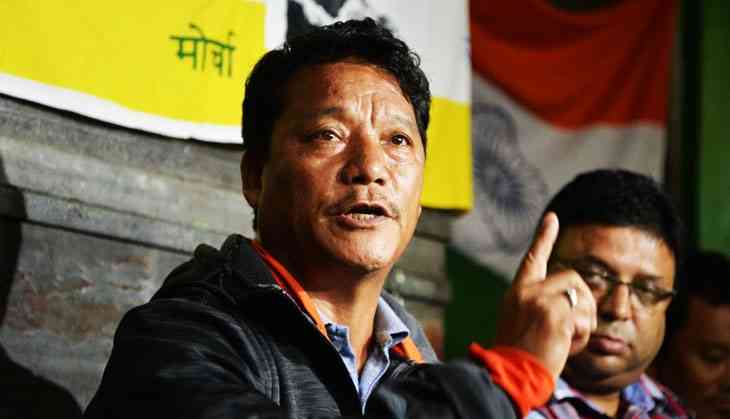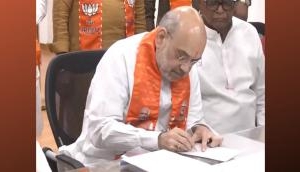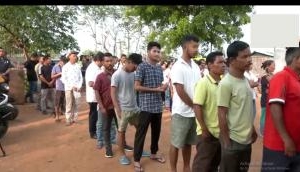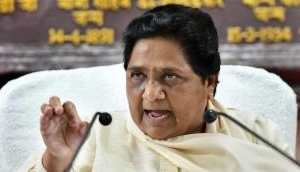Big win for Mamata: Gorkha leader Bimal Gurung backs down and agrees to talk

In a major development in the Darjeeling hills, fugitive Gorkha Janmukti Morcha leader Bimal Gurung has surfaced and expressed his willingness to have talks with West Bengal chief minister Mamata Banerjee.
On Thursday, Gurung said “I feel for the people of Gorkhaland and I think that I should speak to the state government and urge them to reconsider their stand on a separate state of Gorkhaland. I did not want to enter into a dialogue but for the sake of the people of the hills I feel that I should engage with the state government.”
Gurung’s statement is a major victory for West Bengal Chief Minister Mamata Banerjee, who is said to have handled the crisis in the Darjeeling hills with an iron fist.
Despite a shut down for many months, Banerjee refused to agree to the GJMM’s demands. On the other hand, Gurung failed to keep the movement united and faced opposition from within the Gorkha ranks, most prominently to Binoy Tamang. Banerjee exploited these differences and initiated a dialogue with Tamang, who was also made the chairperson of the Gorkha Territorial Administration (GTA).
Political observers say that Gurung was left with no choice as he was losing ground in the hills.
According to senior political analyst Amol Mukherjee, “We feel that Gurung wants to come back into the limelight as his influence was waning”.
Sources also revealed that another reason behind Gurung’s decision was the cold shoulder he received from the BJP. The party was afraid that if it seen as backing the Gorkha agitation, it would harm its prospects in rest of West Bengal.
With Gurung now open to dialogue, it is now up to the West Bengal to decide on the modalities.
Partha Chatterjee state parliamentary affairs minister said “We have not discussed this matter with the chief minister. She will take the final call”.
On November 20, 2017 the Supreme Court restrained the West Bengal police from taking any “coercive action” against Gurung, who had gone underground with some of his aides. They are supposed to have been hiding in Sikkim after the West Bengal police slapped cases under the Unlawful Activities (Prevention) Act against them.






![BJP's Kapil Mishra recreates Shankar Mahadevan’s ‘Breathless’ song to highlight Delhi pollution [WATCH] BJP's Kapil Mishra recreates Shankar Mahadevan’s ‘Breathless’ song to highlight Delhi pollution [WATCH]](http://images.catchnews.com/upload/2022/11/03/kapil-mishra_240884_300x172.png)

![Anupam Kher shares pictures of his toned body on 67th birthday [MUST SEE] Anupam Kher shares pictures of his toned body on 67th birthday [MUST SEE]](http://images.catchnews.com/upload/2022/03/07/Anupam_kher_231145_300x172.jpg)






